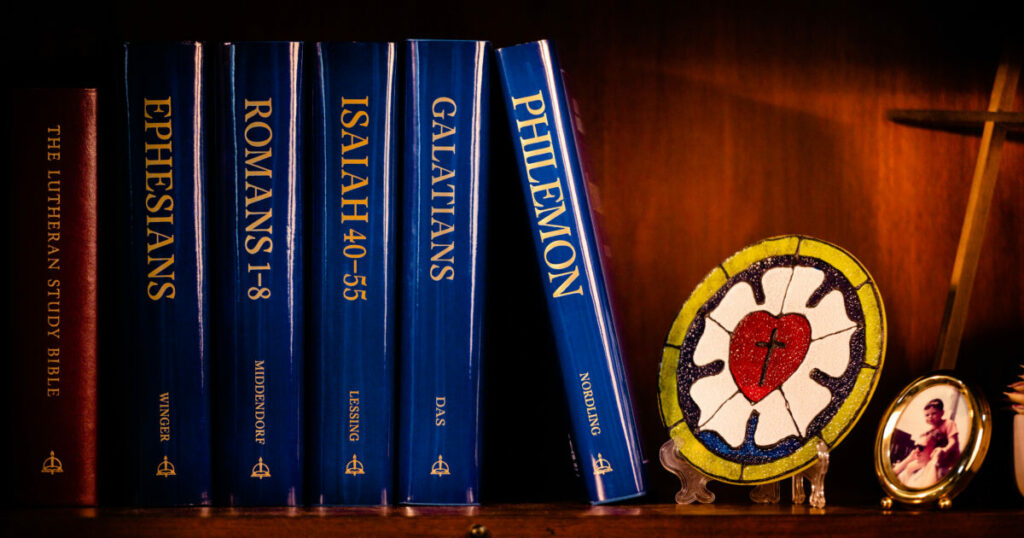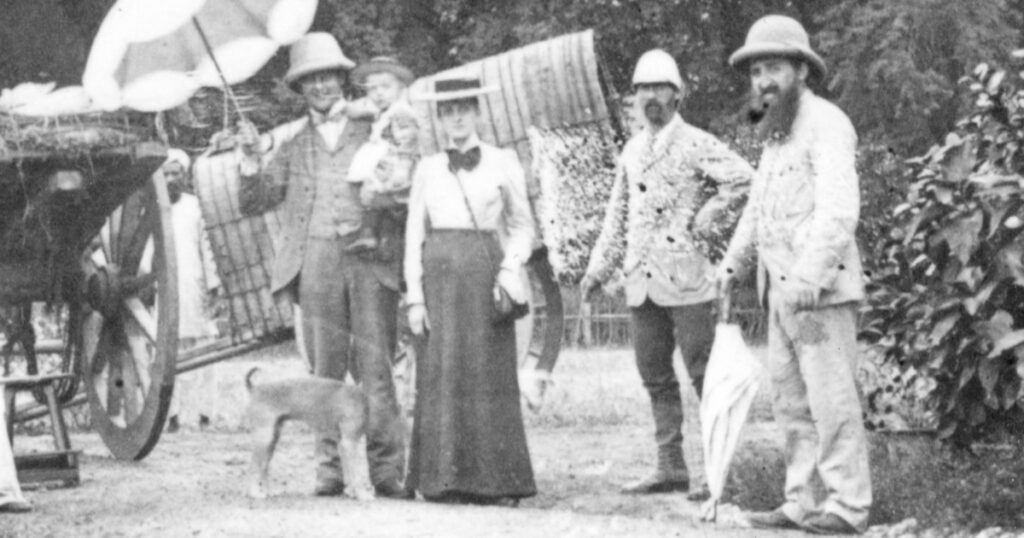by Christopher W. Mitchell
The Holy Scriptures are the lifeblood of the church. “Christ loved the church and gave himself up for her, that he might sanctify her, having cleansed her by the washing of water with the word” (Eph. 5:25–26). Every Christian is born anew in the water of Holy Baptism, is catechized in the Word, and then partakes of the body and blood of our Lord in the Divine Service, which, since Luther’s day, has featured the preaching of the Word as vital for our life together as the communion of saints. What could be more salutary for the enduring welfare of the church than meaty Bible commentaries that provide (1) trustworthy sustenance for the pastor who prepares sermons and Bible studies, (2) guidance for all teachers of the Word and (3) wisdom for every Christian who longs to delve more deeply into the very words spoken to us by our Lord and God?
The Lutheran Church—Missouri Synod lost many of her scholars during the controversies of the 1970s. Throughout the 1980s, 1990s and 2000s, the church has rebuilt to be more robust than ever, fortifying her institutions with theologians faithful to the Word. The Concordia seminaries and universities again have worldclass Bible scholars. But the beneficiaries of their teaching have largely been confined to the students in their classrooms. To make the Word go farther, their expositions of the sacred Scriptures need to be committed to writing (print and electronic) to be accessible to the church worldwide and preserved for future generations. The need is not simply to record specific interpretations of particular passages, but to set forth the entire Lutheran hermeneutic (approach). This begins with the grammar of the original, inspired Hebrew, Aramaic and Greek texts, interpreted as historical, and above all as Christological (Christ-centered), as well as ecclesiological (vivifying the church) and eschatological (preparing us for the return of Christ).
For that purpose, the Concordia Commentary series was conceived at CPH. In 1990, the Rev. Bruce A. Cameron and I, in trepidation, approached Dr. Stephen J. Carter (VP at that time; later, CPH president), who consulted with CPH President John W. (“Jack”) Gerber. Soon, the Rev. Dr. J.A.O. Preus II lent his support and fundraising acumen. After further research and planning, the series was formally launched on July 7, 1992, with a press release that included this pledge: “the Concordia Commentary will focus primarily on Scripture’s kerygma — the evangelical proclamation emanating from God’s Word that calls people to faith in Christ Jesus and empowers them for Christian service and ministry.” The series is faithful to the Scriptures (the norma normans) and the Lutheran Confessions (the norma normata), employs the best of modern biblical scholarship, and is eminently beneficial, not just for academics but especially for pastors and congregations.
These Lutheran emphases give it a unique niche in the world of biblical scholarship. Not since the Old Testament (OT) series by Carl Friedrich Keil and Franz Delitzsch (1850s–1880s) and the New Testament (NT) series by Richard C.H. Lenski (1920s–1930s) has there been a trustworthy, unabridged Lutheran representation. Today a plethora of other series can be had, some reflecting Reformed or Roman Catholic traditions, and others driven by critical methodologies with a bewildering array of quasi-religious, social and political agendas. In the modern context, the Concordia Commentary series presents Jesus Christ in much the same way as did the apostle Paul, preaching on Mars Hill amidst a glut of false gods competing for attention (Acts 17:16–34).
To date, over 40 authors have been recruited from the ranks of the LCMS, the Evangelical Lutheran Synod, the Wisconsin Evangelical Lutheran Church, Lutheran Church—Canada, the Evangelical Lutheran Church of Brazil and Lutheran Church of Australia. To qualify, each is a biblical scholar who has already devoted a large portion of his life’s work (usually decades) to the study of his selected biblical book, and has been recognized as a preeminent expert on that book. The writing of one volume may take five to 10 years or more, as most authors concurrently serve as full-time professors; special arrangements are required to provide an extended period of time dedicated to writing. Every manuscript undergoes a rigorous editorial procedure and must meet the approval of the Synod’s doctrinal review. Thirty-six volumes are in print now, covering most of the NT and a substantial part of the OT. Two more are to be published annually until the series is complete with a total of 72 volumes. For the latest information about books, authors and what is coming next, see books.cph.org/concordia-commentary.
Each volume possesses its own excellencies. It would be impossible to rank any above (or below) others. The undersigned has considered it the highest privilege to work alongside the church’s finest expounders of sacred Scripture, to ponder their profound comprehension of the heights and depths of the revealed wisdom of God, and attempt to help each’s magnum opus be the best it can be, to stand the test of time and bear witness to Christ for eternity.
We are saved by grace alone and through faith alone (Eph. 2:8–9), “created in Christ Jesus for good works, which God prepared beforehand, that we should walk in them” (Eph. 2:10). This endeavor has proceeded thus far only because the Spirit has led dozens to walk together collaboratively in this divinely prepared vocation — a lengthy trek and labor of love — confident that the Lord who has begun this “good work” “will bring it to completion” (Phil. 1:6). Special thanks go to the CPH administration, President and CEO Dr. Bruce G. Kintz, Vice-President Jonathan D. Schultz and the Rev. Paul T. McCain, publisher and executive director of editorial, for their ongoing support and encouragement, which have enabled the series to thrive. SDG.
The Rev. Dr. Christopher W. Mitchell has served at Concordia Publishing House since 1989 and as in-house editor of the Concordia Commentary series since its inception. He is a graduate of the University of Wisconsin—Madison (B.S., 1978; M.A., 1980; Ph.D. in Hebrew and Semitic studies, 1983) and Concordia Seminary, St. Louis (M.Div, 1987).
This article originally appeared in print in the September 2019 issue of The Lutheran Witness.






